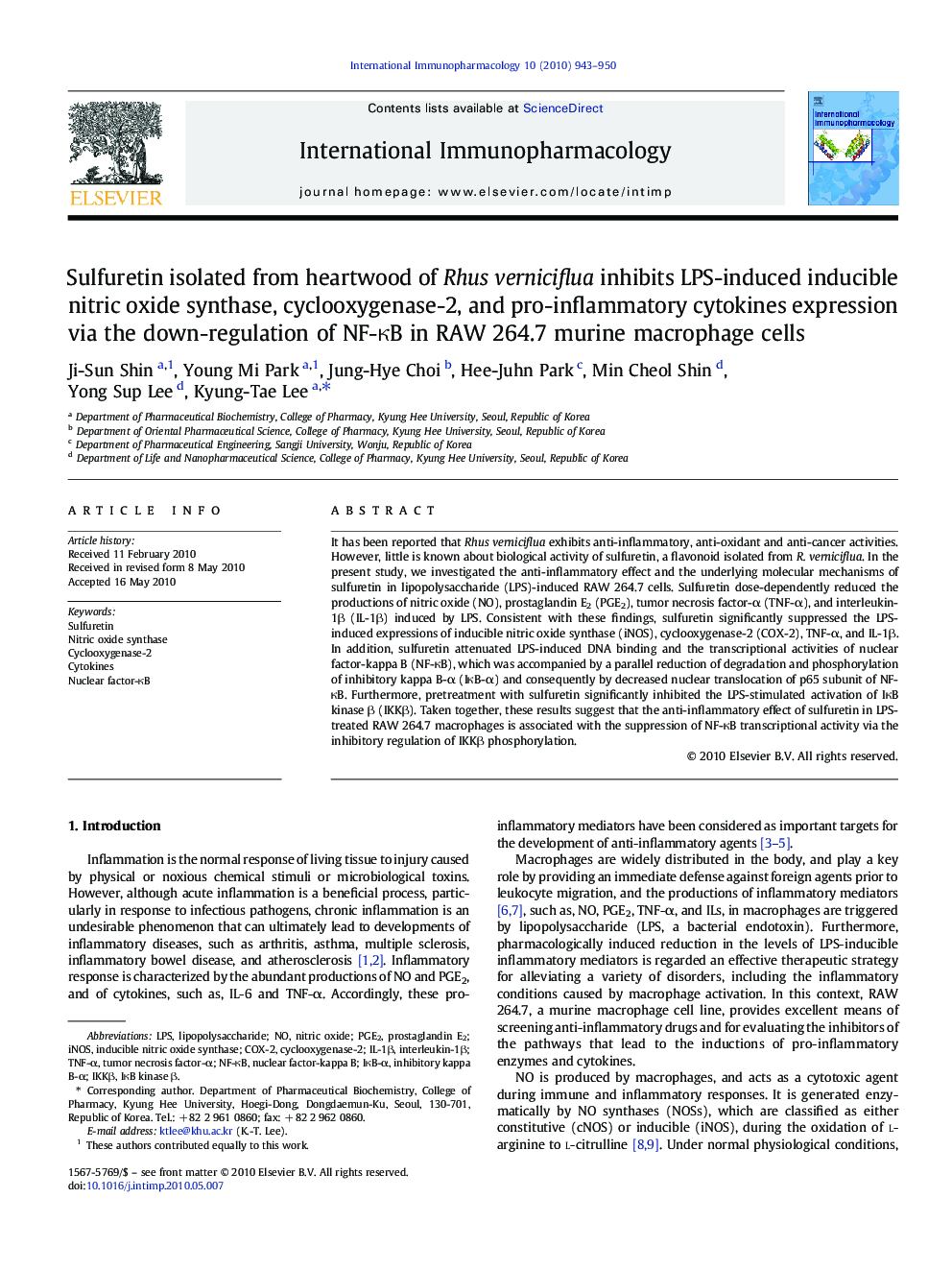| Article ID | Journal | Published Year | Pages | File Type |
|---|---|---|---|---|
| 2541134 | International Immunopharmacology | 2010 | 8 Pages |
It has been reported that Rhusverniciflua exhibits anti-inflammatory, anti-oxidant and anti-cancer activities. However, little is known about biological activity of sulfuretin, a flavonoid isolated from R.verniciflua. In the present study, we investigated the anti-inflammatory effect and the underlying molecular mechanisms of sulfuretin in lipopolysaccharide (LPS)-induced RAW 264.7 cells. Sulfuretin dose-dependently reduced the productions of nitric oxide (NO), prostaglandin E2 (PGE2), tumor necrosis factor-α (TNF-α), and interleukin-1β (IL-1β) induced by LPS. Consistent with these findings, sulfuretin significantly suppressed the LPS-induced expressions of inducible nitric oxide synthase (iNOS), cyclooxygenase-2 (COX-2), TNF-α, and IL-1β. In addition, sulfuretin attenuated LPS-induced DNA binding and the transcriptional activities of nuclear factor-kappa B (NF-κB), which was accompanied by a parallel reduction of degradation and phosphorylation of inhibitory kappa B-α (IκB-α) and consequently by decreased nuclear translocation of p65 subunit of NF-κB. Furthermore, pretreatment with sulfuretin significantly inhibited the LPS-stimulated activation of IκB kinase β (IKKβ). Taken together, these results suggest that the anti-inflammatory effect of sulfuretin in LPS-treated RAW 264.7 macrophages is associated with the suppression of NF-κB transcriptional activity via the inhibitory regulation of IKKβ phosphorylation.
